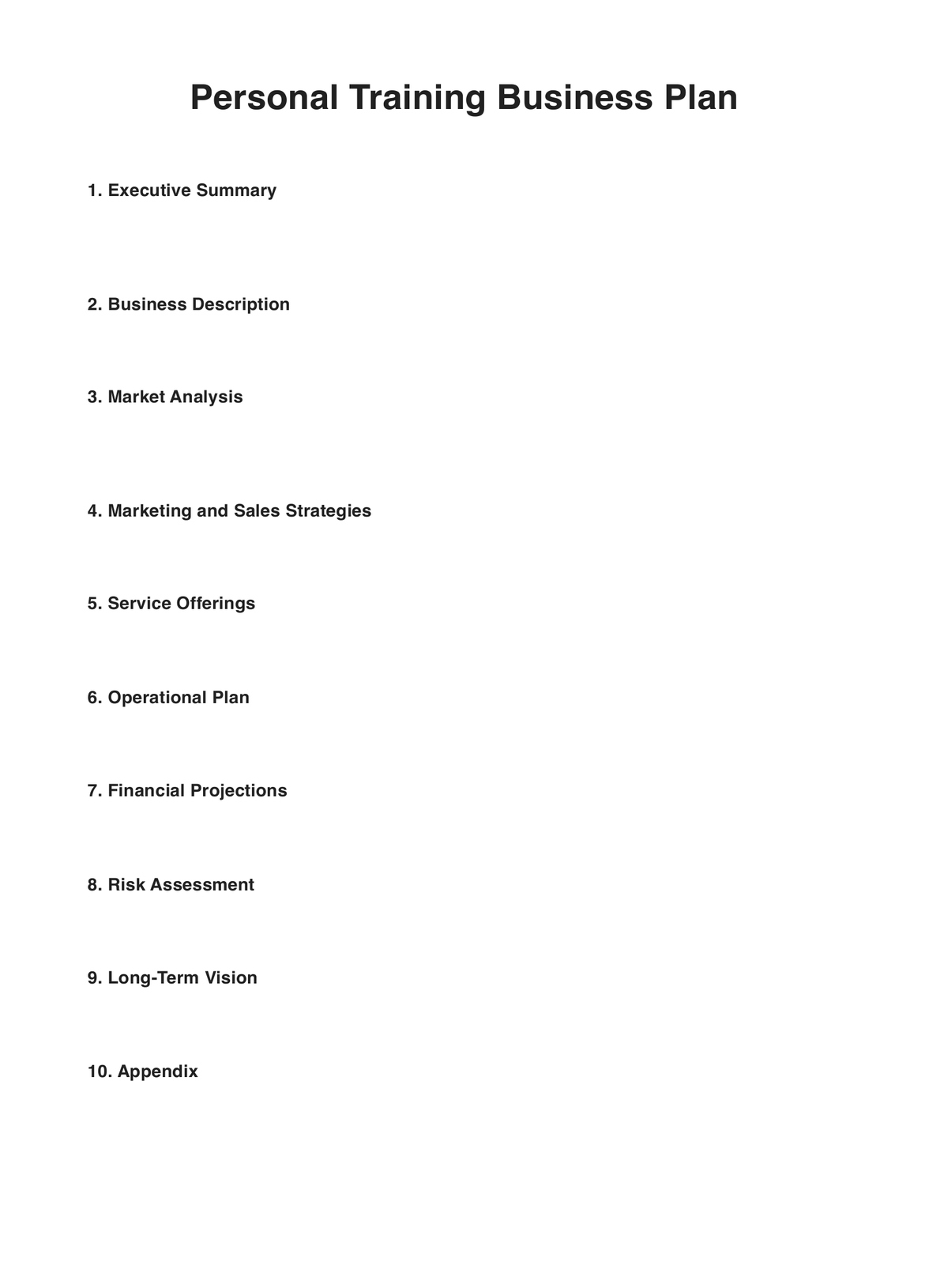Personal Training Business Plans are crucial for fitness entrepreneurs to achieve their business goals.

Personal Training Business Plans
Create a successful fitness venture with a Personal Training Business Plan. Strategize growth, attract clients, and achieve your goals in the industry.
Use Template
Personal Training Business Plans Template
Commonly asked questions
Personal Training Business Plans outline a fitness entrepreneur's business concept, target market, growth strategies, and potential profitability. Trainers review and adjust them periodically to adapt to industry trends and ensure continued success.
Personal Training Business Plans guide fitness businesses on strategy, marketing, operations, and finances. They help trainers make informed decisions.
EHR and practice management software
Get started for free
*No credit card required
Free
$0/usd
Unlimited clients
Telehealth
1GB of storage
Client portal text
Automated billing and online payments











